The history of the OUN-UPA confrontation in the forced labor camps of the NKVD-MGB-MVD
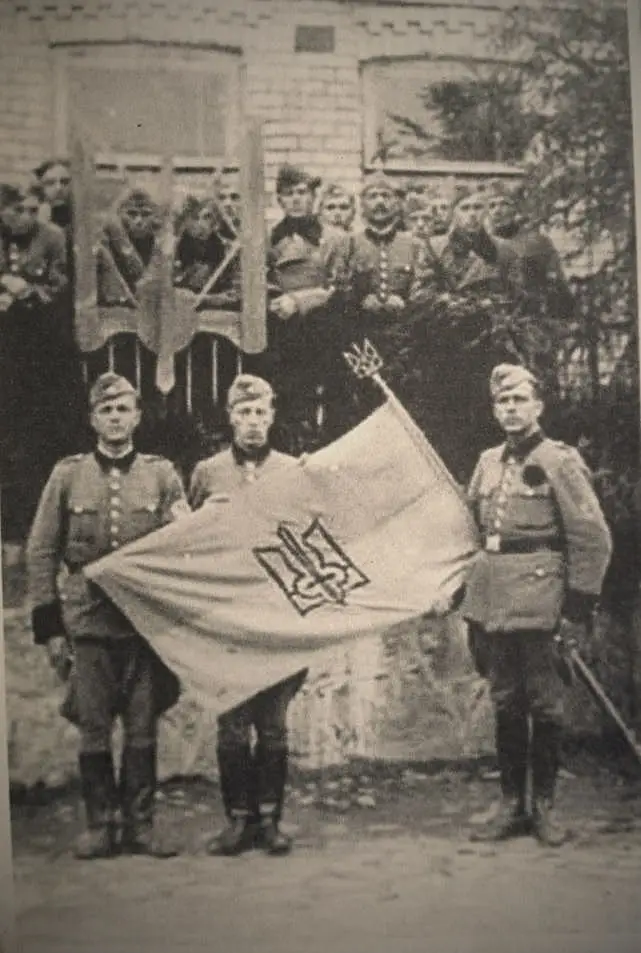
Dear readers, the topic of my article is not entirely suitable for Military Review. There is nothing new in it; I combined known information that is freely available and supplemented it with my own conclusions and thoughts. I hope it will be interesting.
We all know about the successful actions carried out by the state security agencies against the OUN-UPA in the western regions of the Ukrainian SSR, and how, thanks to their courage and professionalism, the nationalist underground was put an end to. But in another battle, state security officials were unable to achieve complete victory, although through no fault of their own. I will try to tell about these events.
Introduction
A long time ago, in the nineties, while watching TV, I watched a program about the uprising of the Mountain Camp (Gorlag) at the Norillag base, the host of the program gently hinted to the invited guest, a direct participant in the event, that he was an innocent victim of terror, but a strong old man, with sparkling eyes, with proudly declared that he was an ideological fighter against the regime and an honored veteran of the OUN-UPA.
Let's figure out how this could happen, I'm talking about the uprising and the fact that the old man lived until the nineties.
Home
No matter how the cinema of independent Ukraine tried to convince viewers, the reunification of the western regions of Ukraine took place calmly, even routinely. NKVD officers primarily focused on confronting Polish underground organizations, which believed that France and Great Britain would soon defeat Germany and force the USSR to return to its previous borders.
The Soviet government tried with all its might to win over the Ukrainian population. And therefore, the fight against the UPA was carried out on a residual basis. Most often, arrests were made in old cases abandoned by the Polish police. Hence the small number of arrested OUN members.
Once in the correctional labor camp, the OUN members behaved defiantly towards the other prisoners. This is what A. A. Sidorov writes about this in his book “Great Battles of the Criminal World. History professional crime in Soviet Russia. Book two (1941–1991)":
Thus, the well-known greeting of Ukrainian nationalists was ridiculed: the traditional address “Glory to the heroes!” and the review “Glory to the heroes!” In fact, the attitude of the prison society towards the “Westerners” was not very friendly.
Firstly, they kept themselves apart, like the Balts, often showing obvious hostility towards the Russians - of whom there was still a majority in the Gulag.” But after the victory of the USSR in the Great Patriotic War, the situation changed dramatically.
If before the war the number of active supporters of the OUN-UPA did not exceed 12 thousand, then after the war, due to various Ukrainian “legionnaires” who were part of armed formations on the side of Germany (Wehrmacht, SS troops, police), the OUN-UPA association grew to 250– 300 thousand
The genocide of Russians, Belarusians, Ukrainians, Poles, and Jews, which was carried out by Ukrainian “legionnaires,” provided two options: flight to the west or retreat into the forests.
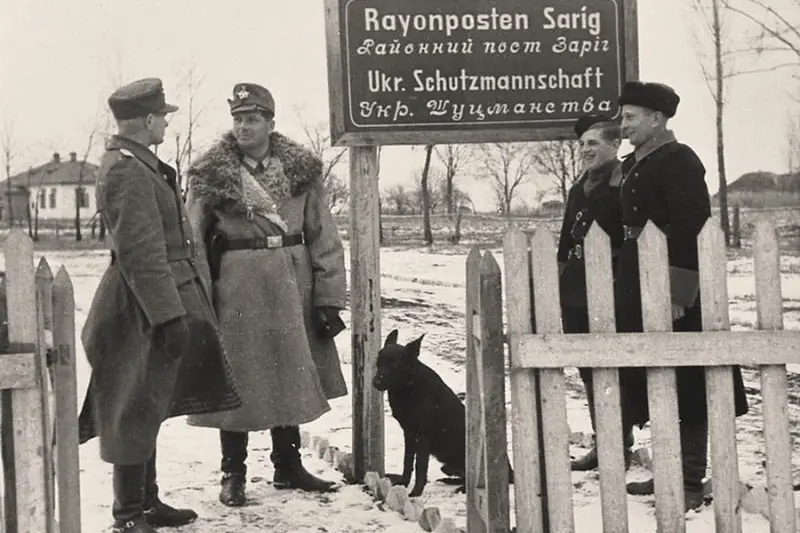
At first, most of the arrested “Banderaites” were from peasants who, not of their own free will, often out of fear, supplied armed groups with food or helped relatives who, succumbing to propaganda, went into the forest. Also, a large percentage were convicted of criminal charges.
There were few ideological and most desperate “Bandera supporters” among them; most of them died in the confrontation with the NKVD-MGB-MVD, but the situation began to change by 1947. In 1947, the USSR abolished the death penalty. In 1947–1948 In Ukraine, amnesties were again announced for Bandera’s supporters.
The Soviet government was able to intensify efforts to defeat the “Bandera” underground and bandit movement in Western Ukraine. The OUN-UPA began to lose the support of the population. The people were tired of the war and the cruelty of the “Banderaites”; they saw the efforts made by the authorities to improve their lives. And a stream of ideological “Banderaites” poured into the camps, whose hands were up to their elbows in blood, who had nothing to lose, and who had organizational experience.
Rubilovka
This term was introduced by A. Solzhenitsyn, as he called the murder of foremen and “secret employees”:
Miroslav Simcic, who served his sentence at a mine in Butugychak, 500 kilometers north of Magadan, recalls:
Evgeny Gritsyak “Norilsk Uprising”:
And although Bukhtuev did not die, but was only seriously wounded, radical changes took place in his psyche: he himself began to be afraid - of everyone! But the authorities did not leave him to his fate (he might still be needed), but hid him in the BUR of one of the Norillag camp departments.
Thus, Bukhtuev found himself, as the prisoners liked to joke, “in the dacha.” It turned out to be easy on the hand: the number of “dacha residents” began to grow rapidly and reached approximately thirty people. The Gorlag administration could not come to terms with this situation.
The specific culprits behind the deaths of Gorozhankin and Sikorsky and the wounding of Bukhtuev could not be identified. The investigative prison has opened. Suspects are put through a hammer and dragged for interrogation. The prisoners do not answer the investigators’ questions, but demand the abolition of the hammer hammers.
And the incredible happened: the hammers were abolished! No one is afraid of the foreman anymore, no one hides from speaking his own language. The climate in the Norilsk camps had clearly changed, but Lieutenant Colonel Sarychev and those with him clearly did not like it. Yes, now they didn’t like this climate.”
The next were the thieves and “bitches” of Valery Ronkin from “December is replaced by January”:
But the next day, a politician was demonstratively killed, who did not want to share the parcel with the thieves. After another murder, Bandera’s men set fire to the thieves’ barracks, having previously boarded up its doors. Those who jumped out of the windows were thrown back. Since then, the thieves’ power in the zone has ended.”
For a complete understanding of what happened - Ya. Ya. Tsilinsky “Notes of a lifetime rehabilitated”:
Some helped the “forest brothers” with food and clothing, while others feared them no less than the security officers. In the camp, the peasant masses were completely subjugated by the militants. They formed the core of the community and set the tone in the community. The mood of the militants was determined by the path they took. Stepan Bandera taught his associates: “Sha, our government must be terrible!”
A forced labor camp is a meeting of those who have broken the law, and the appropriate contingent gathered there; the Soviet government offered amnesty to many of them.
Subsequently, in 1947–1948. In Ukraine, amnesties were again announced for Bandera’s supporters. And in 1947, the USSR completely abolished the death penalty. And in May 1953, Beria and Khrushchev initiated a note on changing policy in the western regions of Ukraine.”
Yes, there was a percentage of those who ended up there by accident, but this certainly does not apply to the “Bandervaites,” as was confirmed in the 90s by the surviving participants in those events. The task of the correctional labor camp administration is to ensure that the criminals compensate for the damage caused by labor and receive the punishment they deserve.
I also do not agree with A. Solzhenitsyn, they did not come from the partisan path, for the OUN members, who killed entire families with axes, burned Belarusian villages, serving the Germans, served as guards in concentration camps, it was easy to kill a person, they lived according to the same principle as thieves , “you die today, and I die tomorrow,” and they killed for someone else.
Having finished with the “thieves' power”, the foremen, the “secret employees” appointed by the leadership of the ITL, Bandera’s supporters began to establish their power and flood the ITL with their “secret employees”. First of all, they began to occupy various camp privileged positions, which provided the most minimal power and the easiest working conditions. They held such positions by force and terror.
Sometimes in this confrontation they clashed with other national groups. One of these examples was the conflict with the Chechens in 1951 at the “River Camp”. Both groups sought to occupy the most profitable administrative and economic positions, but no one wanted to give in.
As a result of the fight, the Chechen leader and his bodyguard were killed. The only people with whom Bandera had an unbreakable alliance were the Lithuanian “forest brothers.” In the Far Camp, the Lithuanian group acted on the instructions of former Banderaites and coordinated with them the murder of an Estonian prisoner from the camp service. At the end of 1951, signs of a possible consolidation of Western Ukrainians and the Baltic states were noted in Rechlag.
Interim result, historian Vladimir Kozlov (“Social sciences and modernity”, 2004, No. 6, pp. 122–136, “Society in captivity: conflictual self-organization of the camp community and the crisis of Gulag management (late 1920s - early 1950s) ":
In terms of frequency of mention in documents, after “thieves” and “bitches” came ethnic (ethnopolitical) groups and organizations. Western Ukrainians (Ukrainian nationalists, Westernizers), “Chechens” (“Caucasians”, “Muslims”) were in the lead; Lithuanians were somewhat inferior to them; some groups consisted entirely or partially of former Vlasovites.”
Remark
Dear readers, I’ll pause for a moment, does anything in what you read confuse you? One thing confused me: according to today’s cinema and the numerous memoirs of Bandera’s followers, they are absolutely exhausted people, working for a piece of bread and experiencing exorbitant physical exertion, and here is a series of reprisals that require serious physical strength.
So where did the “Banderaites” get the strength to resist the thieves, the Chechens, and the ITL administration, and D. M. Panin sheds light on this in his book “Thoughts about Miscellaneous Things,” by the way, an ardent anti-Soviet.
And that's not it.
What did the Banderaites do in the camp, what kind of work did they do?
Let’s give the floor to Evgeny Gritsyak “The Norilsk Uprising.”
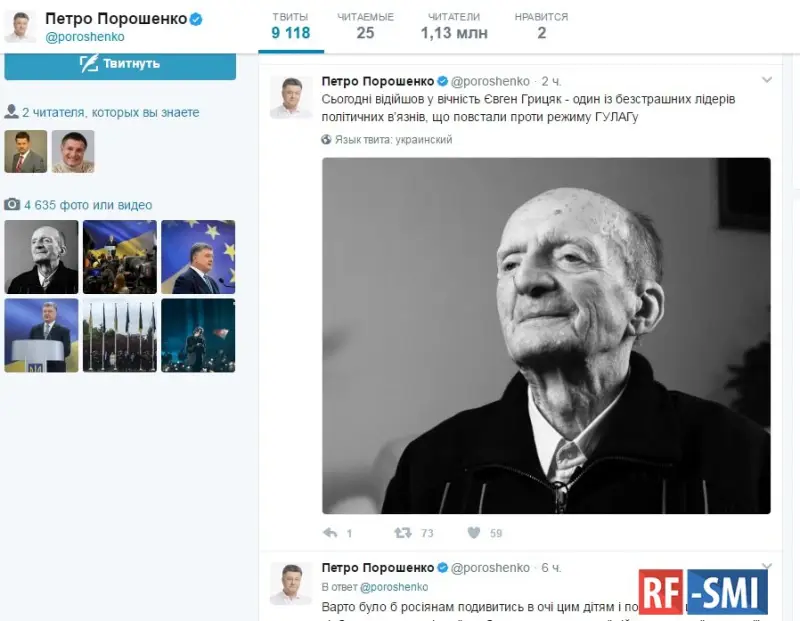
All work, from drawing up the project to commissioning the construction, was carried out by the prisoners themselves. We came across this large construction project just when the city’s central square was being built. We leveled it by transporting soil in wheelbarrows from one place to another. During the hour-long lunch break, we scattered in search of fellow countrymen and new acquaintances. After all, here, unlike the residential area, we were not fenced off from the rest of the prisoners by barbed wire.
In addition, prisoners not only of the 5th, but also of the 4th camp department worked here, and nearby, already fenced off from us by a narrow strip of prohibition, worked women from the 6th camp department, who, through the prism of the barbed wire, seemed to us surprisingly beautiful and attractive.” .
In a word, no rock was cut in the mine, no trolleys were hauled.
The wire
By 1948, in the ITL system, the “Banderaites” succeeded in the most important thing; the underground organization “OUN-Pivnich” (“OUN-North”, also known as the “Polar Wire (Center) OUN”) was formed. “OUN-North” was able to unite and coordinate the activities of the “Bandera” underground. It became impossible for the ITL leadership to introduce their agents, since, having a connection between the camps and the will, they were easily identified and eliminated. It was impossible to win over those who wanted to break with the Banderaites; moving to another camp did not give anything. One of the organizers of OUN-North was M. M. Soroka.
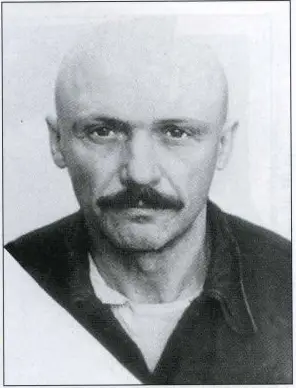
The personality is quite remarkable.
He, like the idea of Ukrainian nationalism, was born in Austria-Hungary. He graduated from the Ukrainian reformed real gymnasium in Rzhevtsy near Prague (Czechoslovakia), the Faculty of Architecture of the Prague Polytechnic (1936). Member of the Ukrainian scout organization "Plast". The scout organization “Plast” still operates, being a hotbed of nationalism; many OUN figures, then the Organization of Ukrainian Nationalists (OUN), emerged from its ranks.
Since 1934, he carried out tasks of the OUN leadership in Western Ukrainian lands. Arrested by Polish authorities on January 9, 1937, sentenced to 5 years in prison; was imprisoned in Stanislavova and Grodno prisons, then in the Bereza-Kartuzskaya concentration camp.
He was released in 1939 after the German-Soviet partition of Poland, on November 5 of the same year in the Greek Catholic Cathedral of St. Yura (Lvov) married Katerina Zaritskaya (1914–1986), the daughter of a prominent Ukrainian mathematician, prof. Mirona Zaritsky, whom he had known since childhood and met again in Stanislavov prison; At the beginning of 1940, he entered the first year of the Faculty of Mathematics of the Lvov Polytechnic Institute, while simultaneously working as a librarian in the library of the Faculty of Physics and Mathematics of the Lvov University, and in March he began taking art courses. Four months after the wedding, on March 22, 1940, he was arrested by Soviet authorities and never met his wife again in his life.
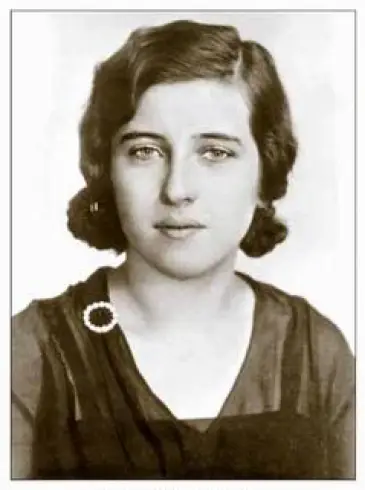
His wife E.M. Zaritskaya was also not an innocent victim. Pseudonyms among the UPA are “Orysya”, “Kalina”, “Moneta”, “Legend”. In March 1940, she was arrested by the NKVD of the Ukrainian SSR on charges of collaboration with nationalists, and until June 1941 she was imprisoned in the Brigidki prison. She escaped from there thanks to the help of Ukrainian nationalists and German Wehrmacht soldiers. She headed the women's department of the OUN. In 1934, Zaritskaya was assigned to plant a bomb in the building of the editorial office of the left-wing newspaper Pratsya.
In 1935–1936, she was arrested by the Polish authorities for anti-Polish activities (in particular, she was charged with the murder of the Polish Minister of Internal Affairs Bronislaw Peracki). At the Warsaw trial, she was sentenced to 8 years in prison, but then the appeal court reduced the prison term to 6 years, and under the amnesty, Catherine received only 4 years. At the Lvov trial, she was sentenced to 5 years in prison for similar crimes, but under the amnesty she received 2 and a half years. In December 1938 she was released.
Once in the ITL, M. M. Soroka received a good position. The administration was in dire need of educated specialists. He was sent to work in the geological party, he became a “moron” - a camp aristocrat. He was in good standing with the camp authorities.
Moving from camp to camp, he and other Banderaites took an active part in the creation of OUN-North, also known as the OUN Polar Wire. After the end of the term, I received permission to go home. In Lvov, he established contact with the OUN leadership that was underground, received additional powers, and worked on issues of communication and interaction. Returning to Vorkuta, where he remained until May 1949, he headed the activities of OUN-North.
Ivan Shevchuk recalls that Mikhailo Soroka himself “had a good memory, he knew where, in which camp, priests, lawyers, doctors, engineers – all our intelligentsia – were located, and there were more than forty camps themselves.” And, in addition, he headed all negotiations on joint actions with Lithuanians, Latvians, Estonians and representatives of other nationalities. There were rumors about the possible imminent outbreak of a third world war, and the first priority of the polar resistance was to prepare for the evacuation of the northern camps across the sea.
A specific situation developed in Vorkuta, which was connected to the “mainland” by only one railway line. If the only bridge on Pechora had been blown up, the entire area would have been isolated not only from Soviet power, but also from food supplies from the south.” Lesya Bondarchuk “Fortunately, a well-thought-out system of conspiracy, taken from the Ukrainian forests and underground, limited the capabilities of a traitor or a weak person who accidentally fell into the ranks of the OUN.
“OUN-Zapolyarye” stood on a solid foundation laid by Mikhail Soroka. And she survived. Even Melnik’s betrayal and the arrest of several leaders did not destroy the organization. Preparations for the uprising continued."
Having united into a single network, the “Banderaites” could do a lot; they pitted warring factions against each other. “Conflicts between the warring camps of “thieves” and “bitches” were very beneficial to us,” recalls Transcarpathian Vasyl Rogach in his memoirs “Happiness in the Struggle.” – After such “showdowns”, some were put in BUR (high security barracks), others were sent to a prison camp. And in the residential area there was a calm for some time - robberies, thefts, and dangerous fights stopped. Later we even tried to provoke these conflicts.
And for a long time we succeeded.” The leadership of the ITL was unable to single out and isolate the ideological and most active leaders of the OUN. Among them were many representatives of the OUN Bezpeki Service (Security Service). M.V. Savka recalls:
Representatives of the SB did not sit in caches, did not fight with weapons in their hands, they caused terror with twists (nooses), the OUN feared them more than the NKVD-MGB-MVD. The Security Council consisted of the most ruthless representatives of the OUN. American historian Jeffrey Burds in his work “Soviet Agents. Essays on the history of the USSR in the post-war years (1944–1948)” Moscow - New York, 2006, analyzing the statistics of SB victims known from the archives for the period 1944–1948, noted that young women predominated among those destroyed by SB. The Security Service began to play an operational game with the leadership of the ITL, providing unreliable information and eliminating opponents with the wrong hands.
The big problem was that among the rank-and-file employees of the labor camp there were many Ukrainians. A. A. Sidorov “Great battles of the criminal world. History of professional crime in Soviet Russia. Book two (1941–1991)":
There was a large percentage of women in the OUN, about 30%. A small example, NKGB captain Iovenko, in a certificate dated June 30, 1945, wrote the following about Lyudmila A.F. “Competent, efficient, knows how to make new acquaintances, quickly navigates the environment. She is careful in her appearances and is always ready to carry out any task of our authorities.”
Only Lyudmila A.F. turned out to be a double agent who betrayed many NKGB employees to death to the Security Service. Also, as soon as a correctional labor camp employee told information about himself, OUN agents could come to his relatives in the wild. And then with money, requests, threats they could force him to cooperate. The ITL employees were not ready to meet such an enemy. It seemed to them that in front of them was a socially dangerous element, student M. M. Soroka, an ordinary member of the OUN, and in front of them was a member of the regional executive (governing body) of the OUN, a fanatic who had been trained from a very early age.
Late
It cannot be said that the Ministry of Internal Affairs did nothing. On February 21, 1948, a resolution of the Council of Ministers of the USSR was issued, according to which “special camps” - “Osoblagi” - were created for political prisoners. But their appearance only aggravated the situation; in such camps the “Banderaites” strengthened their positions; if they did not constitute the majority, they could form large cohesive groups that could carry out sabotage, terrorist attacks, and provoke unrest.
In 1949, M. M. Soroka, who had already been released from Vorkutlag, was re-arrested and had to be transferred to the Krasnoyarsk Territory for investigative measures. During this time, the USSR MGB proved that Soroka created the OUN-Zapolarye in Vorkuta. According to one version, the reason for the persecution was a certain Austrian who, having returned home from captivity, published memoirs about Vorkutlag, in which Mikhailo Soroka appeared as the leader of the underground.
According to another version, M.M. Soroka handed over his own, but this was an accident, and not the result of systematic work. The investigation was unable to uncover the entire network, some of the suspects committed suicide, and the ends are in the water.
An interesting detail about the conduct of investigative measures, an ardent fan of the “Banderaites” Lesya Bondarchuk “Golovay, such an ardent nationalist, announced that he does not understand the Russian language, so he requires a translator! So what would you think? I still had to look for this translator, because according to the law, the investigation must be conducted in the language that the interrogated person speaks! Bandits, notorious, convinced enemies of the Soviet system!
They couldn’t find a translator, so they brought dictionaries from Moscow and, stuttering, began asking questions in crippled Ukrainian. And then Golovay could not stand it, gave up - he began to speak Russian, which he actually spoke excellently: “Torment me as much as you want, but don’t torture my language!” (no comments). M. M. Soroka was sentenced to death, but was commuted to 25 years. “They won’t send more sun, they won’t give us more than a thousand.” While in Kazakhstan, in 1954 Soroka joined the leadership of the Kengir prisoner uprising.
The Ministry of Internal Affairs understood that the situation was difficult. “Powerful, influential, very heterogeneous, usually hostile communities, groups and factions grew up in the camps. They mastered the technique of controlling and manipulating the behavior of the “positive contingent”. If we do not establish firm order, we will lose power,” Minister of the Ministry of Internal Affairs S.N. Kruglov summed up his speech in 1952 at a closed meeting.
But Bandera’s supporters practically already controlled the regions of Vorkuta, Norilsk, Zhezkazgan, Ekibastuz and others that were vital for the country. “Bandera’s men” carried out perestroika, or maybe it was the new Western curators who forced them to change their views. They moved from the idea of anti-Semitism and rabid nationalism to cooperation with everyone who opposed the Soviet regime.
Instead of firmness, the leadership of the Ministry of Internal Affairs showed weakness and entered into negotiations when suppressing the riots of Gorlag prisoners in 1953, thereby confirming the power of the “Banderaites.” What’s interesting is that Bandera’s supporters did not always lead the riots. For example, in the riots in Vorkuta they were not nominal leaders. But it was they who showed the greatest resistance during the operation to restore order.
And again a small digression.
The Banderaites were very lucky; historical processes were very favorable to them.
First, the First World War, where the troops of Austria-Hungary destroyed all those who sympathized with Russia in western Ukraine, then the Civil War, where their predecessors first tried to take power into their own hands and exterminated all those who disagreed. Then the fall of Poland in 1939, the beginning of the Great Patriotic War, in which they sat in the rear and further strengthened their position. The beginning of a new Cold War gave them new hope: “America is with us.” The rise to power of N. S. Khrushchev. The collapse of the USSR.
They are back
And then they returned, after the decree of 1955, more than 200 thousand former active participants of “Bandera” and exiled family members returned to the territory of the Ukrainian SSR. Then another 40–60 thousand “Banderaites” returned from abroad. They spread the infection of nationalism throughout the Ukrainian SSR, settling in Kharkov, Donetsk, Dnepropetrovsk, Kherson and other regions. Many of them served just over 5-8 years, some less. To calm the people, a rumor was introduced that there were those in the North whose hands were up to their elbows in blood, that they were afraid to return. They say they will die there.
Interview with Yu. Lutsenko “MK in Donbass” from 2002:
The grandchildren and children of the survivors were simply blown away by the facts when the police arrived and built mansions for themselves. But under the watchful eye of the Communist Party, somehow these problems were ironed out, and people, in any case, did not violently express their hostility. It remains in our souls, but the enmity has still left the streets.”
The “party leadership” quickly realized all the benefits of returning, because “Bandera supporters” quickly appeared among them.
It demanded money from the republican and union budgets, citing certain historical difficulties of the region. The fact that the western regions of the Ukrainian SSR are visited by numerous foreign delegations. P. E. Shelest, first secretary of the Central Committee of the Communist Party of Ukraine, member of the Presidium of the Politburo of the CPSU Central Committee, deputy chairman of the Council of Ministers of the USSR (in 1963, on the personal recommendation of Khrushchev, he headed the Central Committee of the Communist Party of Ukraine).
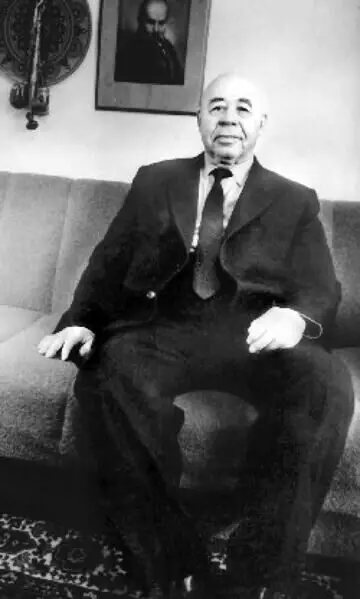
And a year later, together with Brezhnev, he took part in a conspiracy against Khrushchev. He fully supported the Banderaites.
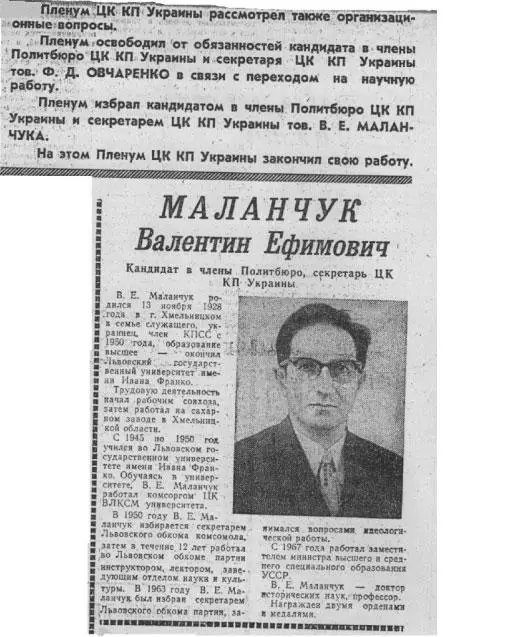
Professor and secretary of the Lvov regional committee Valentin Malanchuk was forced to write a letter to Brezhnev, in which he reported that former members of the OUN gangs were appointed by the party leadership to responsible positions. Moscow reacted only after P.E. Shelest raised the question of the right of the Ukrainian SSR to independently conclude foreign trade transactions.
In 35 years the USSR will no longer exist. And they and their children and grandchildren came to the “holy” nineties for various events and the opening of monuments to themselves in Russia. But that is another story.
PS
Animals stood
Near the door.
They were shot
They were dying.
But there were those who took pity on them,
Those who opened these doors to the beasts.
The animals were greeted with songs and loud laughter.
And the animals came in and killed everyone.
Information